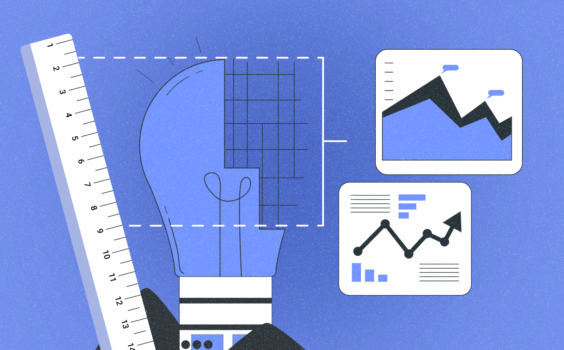Mock Interview
Understanding Mock Interviews: A Comprehensive Guide
In the realm of job hunting and career development, mock interviews have become an invaluable tool for candidates seeking to enhance their interview skills and boost their confidence. This comprehensive guide delves into the intricacies of mock interviews, exploring their purpose, benefits, and best practices for both interviewers and interviewees.
What is a Mock Interview?
A mock interview is a simulated job interview that mimics the conditions and questions of a real interview. It provides job seekers with an opportunity to practice their interview skills in a low-stakes environment, recieve feedback, and refine their responses. These practice sessions can be conducted by career counselors, HR professionals, or even friends and family members who have experience in interviewing.
Mock interviews can take various forms, including:
- Face-to-face interviews
- Phone interviews
- Video interviews
- Panel interviews
The format chosen often depends on the type of interview the candidate is preparing for and the resources available.
The Importance of Mock Interviews
Mock interviews play a crucial role in preparing candidates for the real deal. They offer numerous benefits that can significantly impact a job seeker's chances of success:
1. Reducing Anxiety and Building Confidence
One of the primary advantages of mock interviews is their ability to alleviate interview anxiety. By familiarizing candidates with the interview process, they help reduce the fear of the unknown. Repeated practice allows job seekers to feel more comfortable and confident when facing actual interviews.
2. Improving Communication Skills
Mock interviews provide an excellent opportunity to hone communication skills. Candidates can practice articulating their thoughts clearly, concisely, and professionally. They learn to structure their responses effectively and avoid common pitfalls like rambling or using filler words.
3. Identifying Weaknesses and Areas for Improvement
Through feedback from mock interviewers, candidates can identify areas where they need improvement. This might include body language, tone of voice, or the content of their responses. Recognizing these weaknesses early allows job seekers to address them before the actual interview.
4. Familiarization with Common Interview Questions
Mock interviews expose candidates to a wide range of potential questions, including both standard and industry-specific queries. This familiarity helps job seekers prepare thoughtful, relevant responses and reduces the likelihood of being caught off-guard during the real interview.
Preparing for a Mock Interview
To maximize the benefits of a mock interview, thorough preparation is essential. Here are some key steps to consider:
1. Research the Company and Position
Just as with a real interview, candidates should research the company and position they're interviewing for. This information can be used to tailor responses and demonstrate genuine interest in the role.
2. Review Common Interview Questions
Familiarize yourself with frequently asked interview questions and practice formulating responses. This includes both general questions (e.g., "Tell me about yourself") and role-specific queries.
3. Prepare Your Own Questions
Develop a list of thoughtful questions to ask the interviewer. This demonstrates your interest in the position and company while also helping you gather valuable information.
4. Dress Appropriately
Treat the mock interview as you would a real one by dressing professionally. This helps create a more authentic experience and allows you to practice presenting yourself in a professional manner.
Conducting an Effective Mock Interview
For those conducting mock interviews, whether as HR professionals or mentors, there are several key factors to consider:
1. Create a Realistic Environment
Strive to replicate the conditions of a real interview as closely as possible. This might include setting up a formal interview space, using video conferencing tools for remote interviews, or even simulating a panel interview scenario.
2. Use a Mix of Question Types
Incorporate various types of interview questions, including:
- Behavioral questions
- Situational questions
- Technical questions (if applicable)
- Competency-based questions
This diverse approach helps prepare candidates for a wide range of potential interview scenarios.
3. Provide Constructive Feedback
Offer detailed, constructive feedback after the mock interview. Focus on both strengths and areas for improvement, covering aspects such as:
- Content of responses
- Body language and non-verbal communication
- Tone and articulation
- Overall presentation and professionalism
Be specific in your feedback, providing examples and suggestions for improvement.
4. Encourage Self-Reflection
Ask the candidate to assess their own performance. This self-reflection can be valuable in identifying areas they feel less confident about and promoting a growth mindset.
Common Mock Interview Questions
While the specific questions asked in a mock interview may vary depending on the industry and position, there are several common questions that are often included:
1. Tell me about yourself.
This open-ended question allows candidates to provide a brief overview of their professional background, skills, and career aspirations. It's an opportunity to make a strong first impression and set the tone for the rest of the interview.
2. Why are you interested in this position?
This question assesses the candidate's motivation and understanding of the role. It's an opportunity for them to demonstrate their research into the company and position.
3. What are your greatest strengths and weaknesses?
This classic question allows candidates to showcase their self-awareness and ability to present themselves positively while acknowledging areas for improvement.
4. Can you describe a challenging work situation and how you handled it?
This behavioral question assesses problem-solving skills and the ability to navigate difficult situations professionally.
5. Where do you see yourself in five years?
This question gauges a candidate's career aspirations and long-term commitment to the field or company.
Advanced Mock Interview Techniques
For those looking to take their mock interview preparation to the next level, consider these advanced techniques:
1. Industry-Specific Scenarios
Incorporate role-playing exercises that simulate real-world scenarios specific to the industry or position. This could include handling a difficult customer in retail or debugging code under pressure for a software development role.
2. Stress Interviews
While not suitable for all candidates, stress interviews can help prepare individuals for high-pressure situations. These interviews intentionally create a tense atmosphere to assess how candidates handle stress.
3. Video Recording
Record mock interviews on video to allow candidates to review their performance objectively. This can be particularly helpful in identifying non-verbal cues and mannerisms that may go unnoticed otherwise.
4. Multiple Interviewers
Conduct mock interviews with different interviewers to expose candidates to various interviewing styles and perspectives. This can help them adapt to different personalities and questioning techniques.
The Role of Technology in Mock Interviews
As technology continues to evolve, it's increasingly being integrated into the mock interview process:
1. AI-Powered Interview Platforms
Some companies are using artificial intelligence to conduct mock interviews. These platforms can analyze a candidate's responses, facial expressions, and tone of voice, providing detailed feedback on various aspects of their performance.
2. Virtual Reality (VR) Interviews
VR technology is being explored as a way to create immersive mock interview experiences. This can be particularly useful for simulating high-stress scenarios or specific work environments.
3. Online Interview Simulators
Web-based platforms offer interview simulations that candidates can access anytime, anywhere. These tools often include a bank of common questions and provide instant feedback on responses.
Overcoming Common Mock Interview Challenges
While mock interviews are invaluable tools, they come with their own set of challenges. Here are some common issues and strategies to address them:
1. Lack of Authenticity
Some candidates may find it difficult to take mock interviews seriously or may feel awkward role-playing. To combat this, create as realistic an environment as possible and encourage candidates to fully immerse themselves in the experience.
2. Over-Preparation
While preparation is crucial, over-rehearsing can lead to responses that sound robotic or insincere. Encourage candidates to focus on the key points they want to convey rather than memorizing scripted answers.
3. Feedback Overload
Receiving a large amount of feedback can be overwhelming. Prioritize the most critical areas for improvement and provide actionable steps for addressing them.
4. Time Constraints
Finding time for thorough mock interviews can be challenging. Consider offering shorter, focused sessions that target specific aspects of the interview process.
Measuring the Effectiveness of Mock Interviews
To ensure that mock interviews are truly beneficial, it's important to measure their effectiveness. This can be done through various methods:
1. Pre and Post-Assessment
Conduct assessments before and after a series of mock interviews to gauge improvement in areas such as confidence, communication skills, and interview knowledge.
2. Feedback Surveys
Collect feedback from candidates on the usefulness of the mock interview process and areas where they feel they've improved.
3. Success Rates
Track the success rates of candidates who have undergone mock interviews compared to those who haven't. This can provide valuable data on the impact of these practice sessions.
4. Long-Term Follow-Up
Check in with candidates after they've secured positions to gather insights on how well the mock interviews prepared them for their actual interviews and roles.
Conclusion: The Lasting Impact of Mock Interviews
Mock interviews are more than just practice sessions; they're valuable learning experiences that can shape a candidate's career trajectory. By providing a safe space to refine interview skills, build confidence, and recieve constructive feedback, mock interviews empower job seekers to present their best selves to potential employers.
As the job market continues to evolve, the importance of thorough interview preparation cannot be overstated. Mock interviews, when conducted effectively, equip candidates with the tools they need to navigate the complexities of the hiring process and stand out in a competitive landscape.
Whether you're a job seeker looking to sharpen your skills or an HR professional aiming to support candidates, investing time and effort into mock interviews can yield significant returns. By embracing this powerful tool and continually refining the process, we can create more confident, competent, and successful professionals across all industries.


